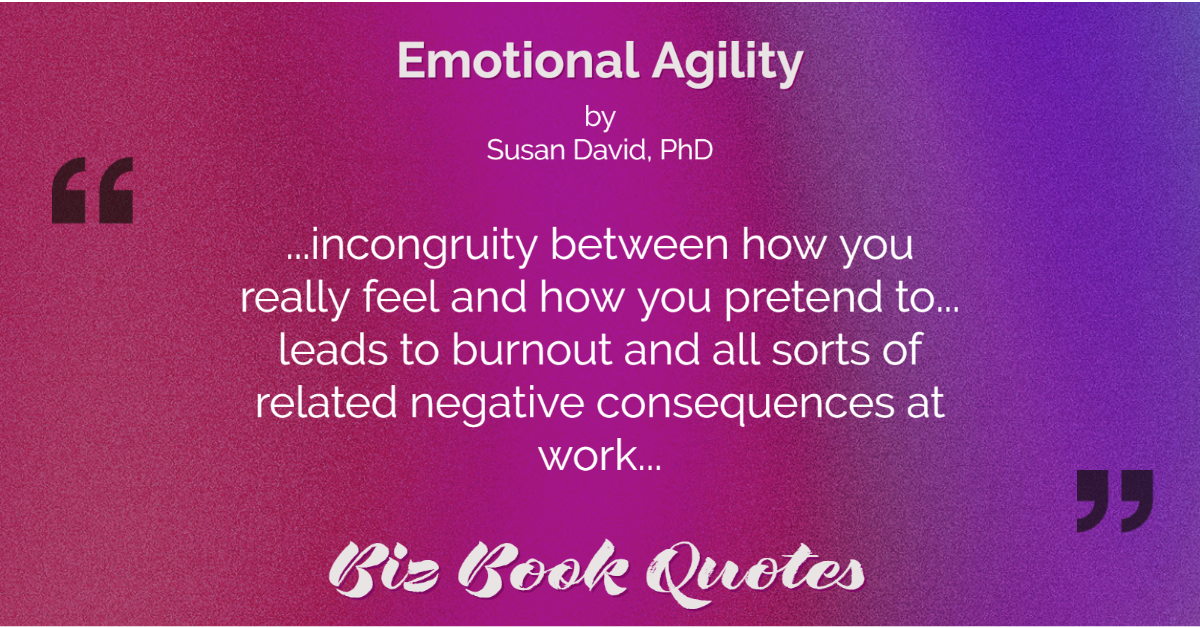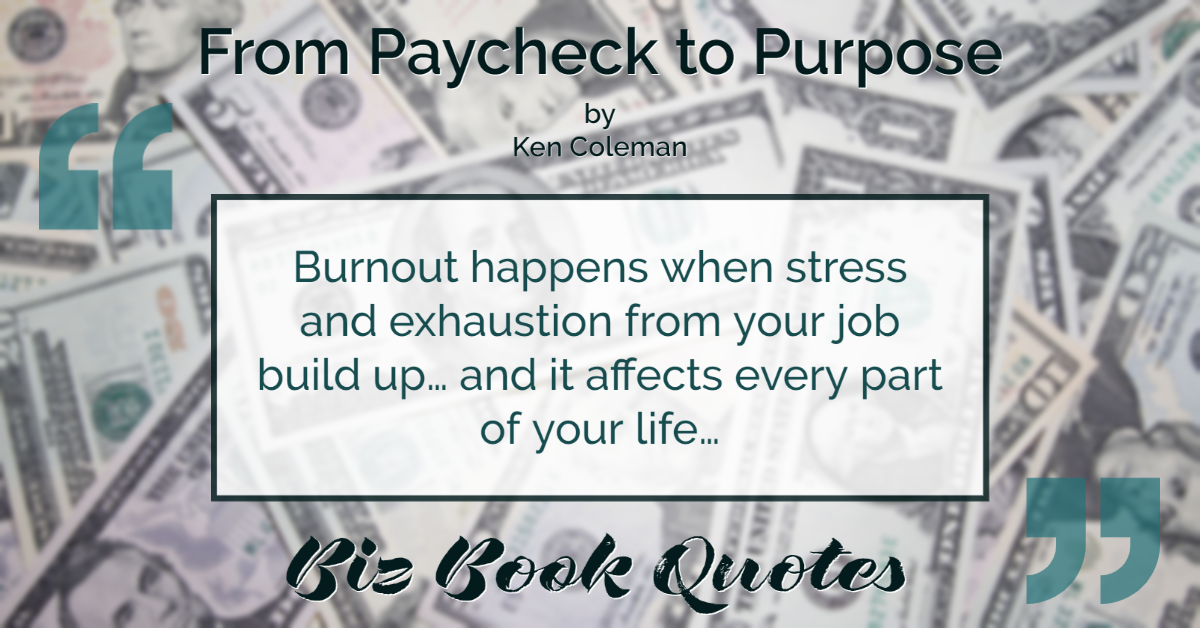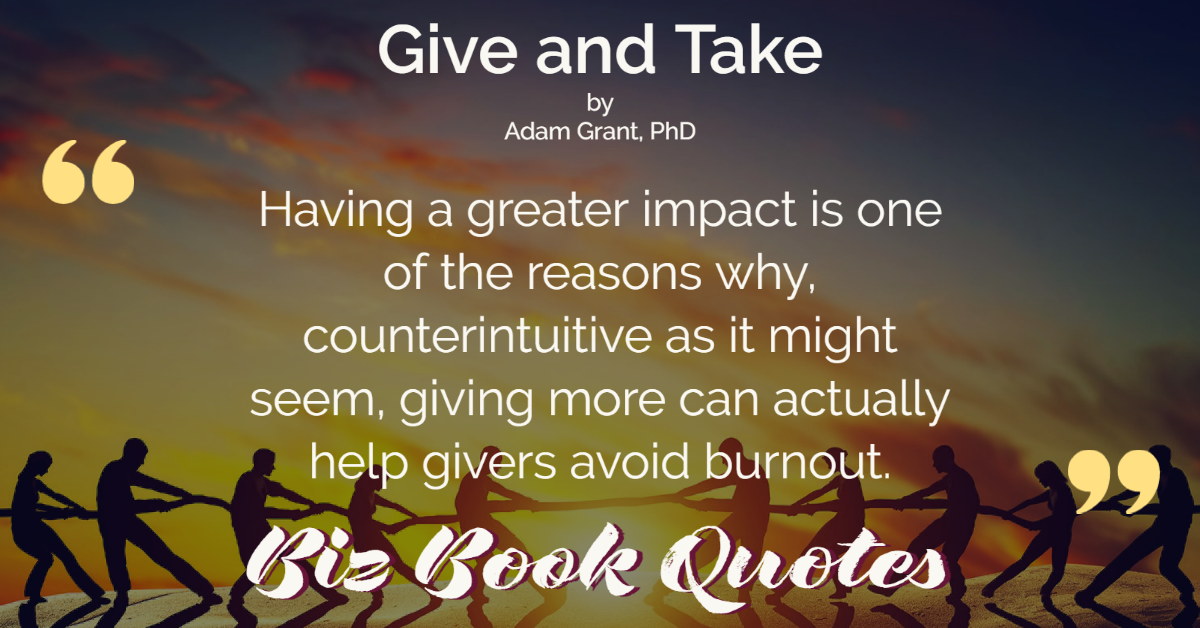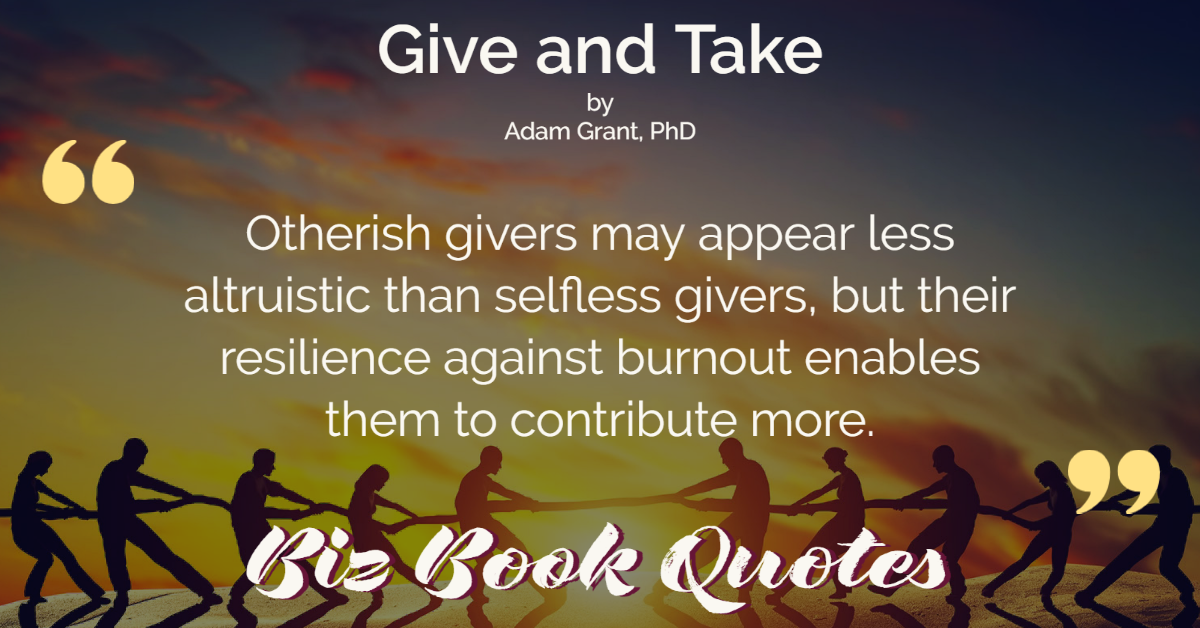 |
…incongruity between how you really feel and how you pretend to… leads to burnout and all sorts of related negative consequences at work…
|
209 |
 |
Burnout happens when stress and exhaustion from your job build up… and it affects every part of your life…
|
229 |
 |
Burnout happens, not because we’re trying to solve problems but because we’ve been trying to solve the same problem over and over and over.
|
124 |
 |
…when concern for others is couples with a healthy dose of concern for the self, givers are less prone to burning out and getting burned…
|
158 |
 |
…extensive research shows that when people become burned out, their job performance suffers.
|
161 |
 |
…evidence reveals that burned-out employees are at heightened risk of depression, physical fatigue, sleep disruptions, impaired immune systems, alcohol abuse, and even cardiovascular disease.
|
161 |
 |
Along with reducing burnout among givers, a firsthand connection to impact can tilt people of all reciprocity styles in the giver direction.
|
168 |
 |
Having a greater impact is one of the reasons why, counterintuitive as it might seem, giving more can actually help givers avoid burnout.
|
168 |
 |
…otherish givers are fortified against burnout: through giving, they build up reserves of happiness and meaning that takers and matchers are less able to access.
|
185 |
 |
Otherish givers may appear less altruistic than selfless givers, but their resilience against burnout enables them to contribute more.
|
185 |